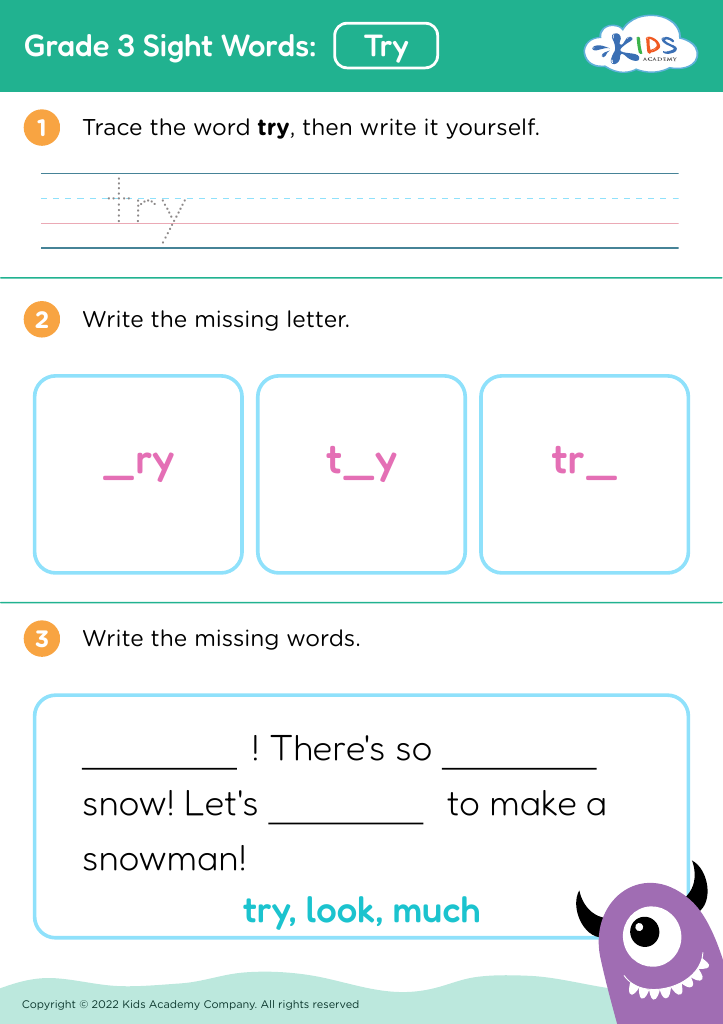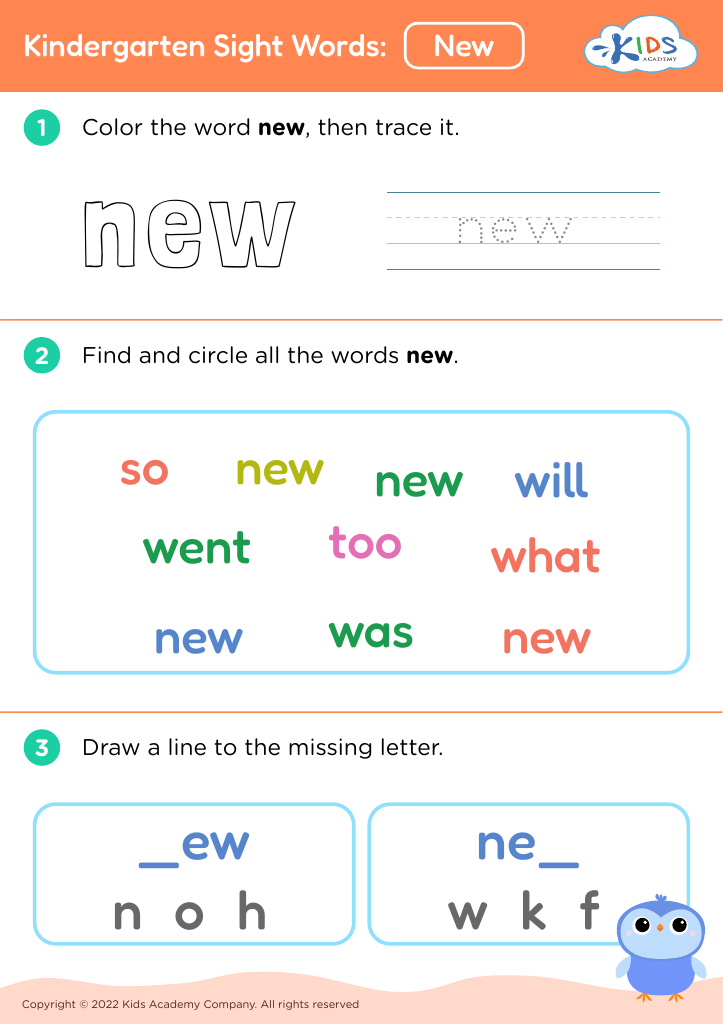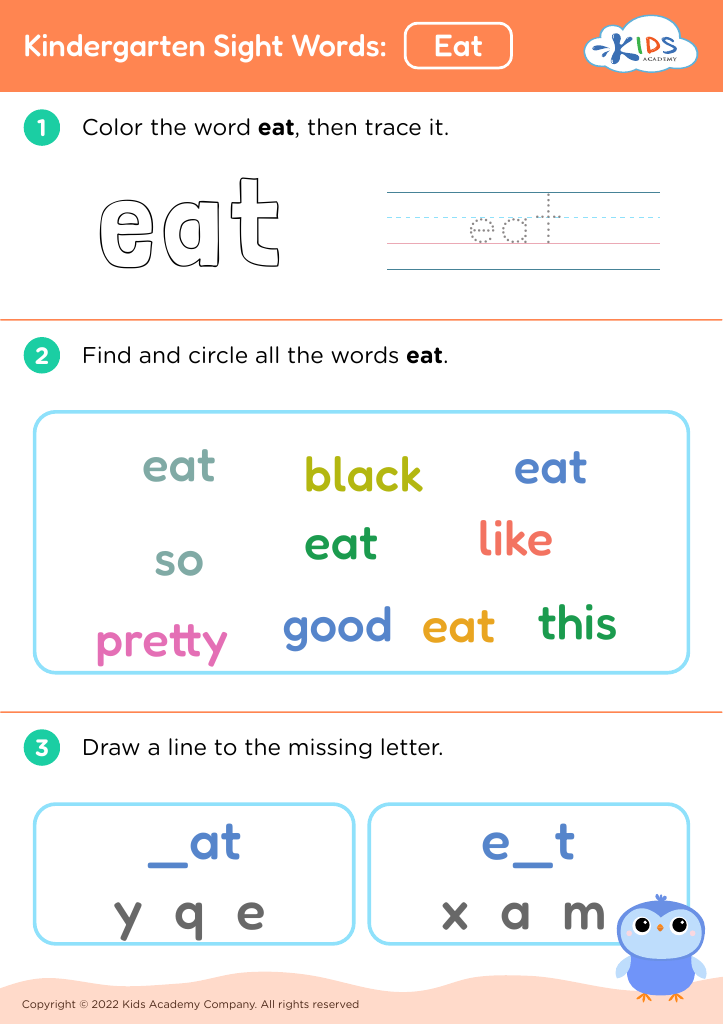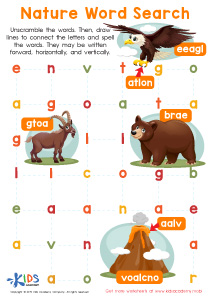Color recognition Sight Words Worksheets for Ages 4-8
4 filtered results
-
From - To
Discover the fun and engaging Color Recognition Sight Words Worksheets designed specifically for children aged 4-8! These worksheets blend essential literacy skills with vibrant visuals, helping young learners identify sight words while enhancing their ability to recognize colors. Each activity is crafted to captivate your child’s attention, fostering a love for learning through play. These resources are perfect for enhancing vocabulary, developing fine motor skills, and promoting color awareness. Ideal for preschool and kindergarten classrooms, our worksheets make learning enjoyable and interactive. Tap into your child's potential with our innovative color recognition and sight word exercises today!
Color recognition and sight words play a critical role in the early literacy development of children ages 4-8. Understanding colors acts as a foundation for kids to describe their world, categorize objects, and communicate effectively. Moreover, color recognition enhances visual discrimination skills that support reading development. When children discern different colors, they are essentially practice observing and interpreting visual information—skills essential for decoding text.
Sight words, on the other hand, are the building blocks of reading fluency. These are common words that children are encouraged to recognize instantly, rather than deciphering them phonetically. By mastering sight words, children can read more smoothly and with greater comprehension. This boosts their confidence and encourages a love for reading.
For educators and parents, fostering these skills creates a conducive learning environment that prioritizes literacy. Engaging with children through games, art projects, or storytelling that incorporates colors and sight words makes learning enjoyable and effective. By valuing these foundational skills, parents and teachers reinforce critical cognitive and linguistic development, paving the way for successful academic futures. Ultimately, early engagement in color recognition and sight word mastery is essential for building proficient young readers ready to take on more complex literacy tasks as they advance.



















